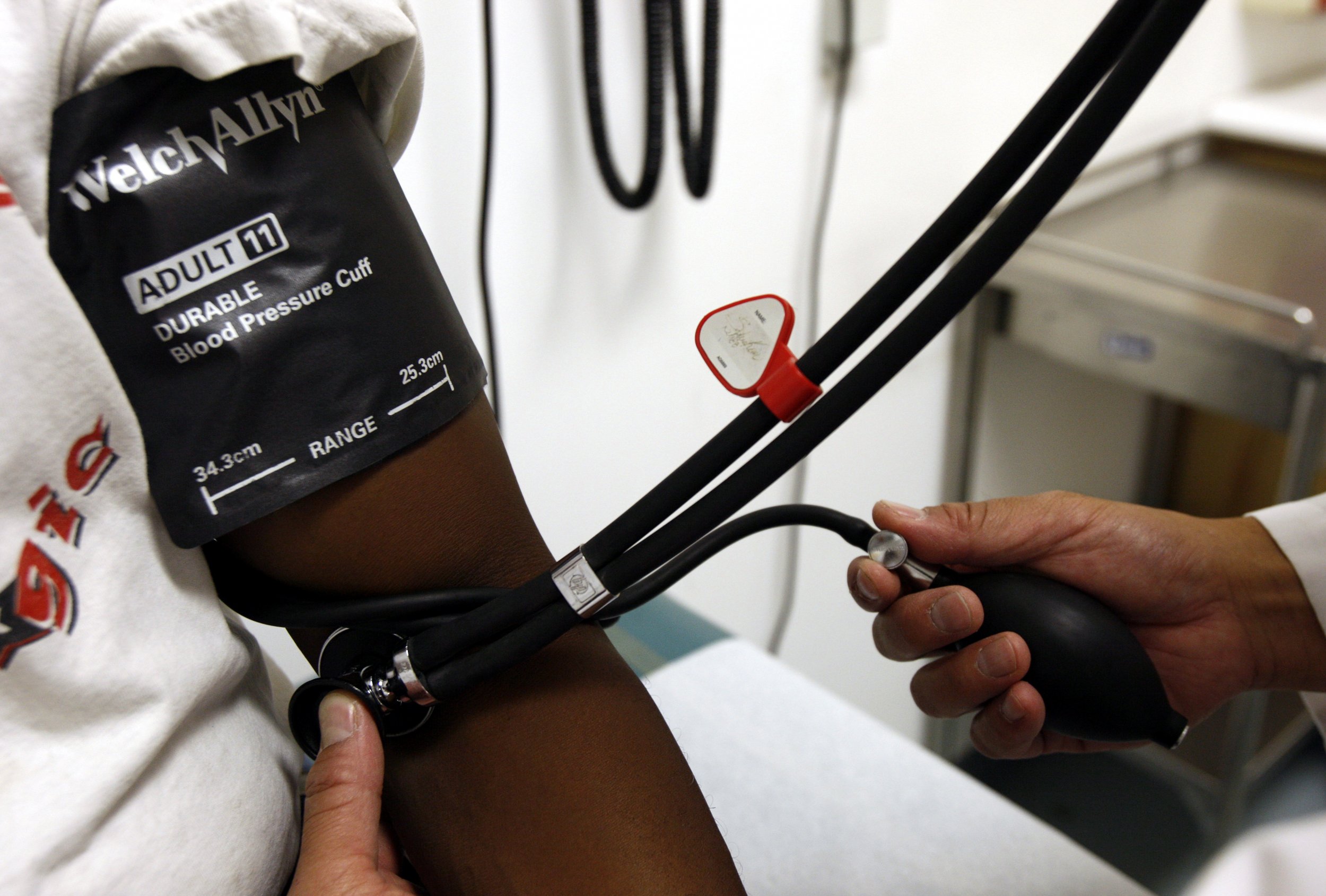
The U.S. Preventive Services Task Force—an independent panel of volunteer physicians that makes recommendations for preventive medicine—released updated guidelines for screening high blood pressure in adults. The task force issued a letter grade of A for screening every American age 18 and older for hypertension, suggesting there is a "high certainty that the net benefit is substantial."
The task force's final recommendations, based on more than 9,309 abstracts and 1,171 full-text articles, were published Monday in the Annals of Internal Medicine and also posted on the task force's website. In the new guidelines, the panel recommends annual screening for people with an increased risk for high blood pressure, such as African-Americans and those who are obese or overweight. Less frequent screenings—once every three to five years—are recommended for healthy individuals aged 18 to 39 with normal blood pressure.
The panel last updated high blood pressure screening guidelines in 2007. Though the guidelines to screen everyone for high blood pressure over age 18 haven't changed, the task force has added one new provision in its updated guidelines, recommending physicians confirm a high blood pressure diagnosis with follow-up measurements before prescribing blood pressure medication or other medical interventions to a patient.
In particular, the task force recommends physicians gather follow-up measurements using an ambulatory blood pressure monitor, which is a cuff attached to a small, portable machine that records blood pressure for 12 to 48 hours. Physicians can also confirm a diagnosis of high blood pressure by having patients use a blood pressure monitor at home.
Ebell says the task force recommends follow-up screening as a way to address the prevalence of "white coat hypertension," which is when a patient's blood pressure measurement is drastically different in a clinical setting than it is in the real world. Blood pressure may be elevated at a doctor's office because a patient is nervous or experiencing acute pain, both of which impact a reading. Regular follow-up screenings also allow doctors to assess if there are other factors contributing to elevated blood pressure, which can be a side effect of some medications.
Physicians evaluate blood pressure with a sphygmomanometer, or blood pressure meter. The device provides two different but connected measurements. Systolic (the top number) is the arterial pressure when the left ventricle of the heart contracts. Diastolic (the bottom number) measures the pressure in the arteries between heartbeats. A healthy blood pressure is a systolic reading of less than 120 and a diastolic reading of less than 80.
High blood pressure, or hypertension, affects some 70 million Americans, according to the U.S. Centers for Disease Control and Prevention. Not only does hypertension increase one's risk for stroke and heart attack, but the condition often also goes hand-in-hand with other serious and chronic diseases, including heart disease, diabetes, metabolic syndrome, arteriosclerosis (narrowing of the blood vessels) and cognitive problems.
"There are many adults out there who don't know they have high blood pressure, who can benefit from screening," says task force member Dr. Mark Ebell. "We felt that the science is really strongly established, and that identifying hypertension can prevent strokes and heart attacks." Ebell adds that starting blood pressure screening at a young age is important because hypertension frequently is diagnosed in patients in their 20s and 30s.
It's unusual for the task force to recommend a screening measure across the board for all adult patients. Typically, the task force issues more complicated—and sometimes even controversial—guidelines. For example, its recommendations for the right age to get breast cancer screening with mammography continues to be a subject of contentious debate. The panel consults the U.S. Department of Health and Human Services, and its recommended guidelines for nearly 100 screenings influence health care coverage for millions of patients in the U.S.
Uncommon Knowledge
Newsweek is committed to challenging conventional wisdom and finding connections in the search for common ground.
Newsweek is committed to challenging conventional wisdom and finding connections in the search for common ground.
About the writer
Jessica Firger is a staff writer at Newsweek, where she covers all things health. She previously worked as a health editor ... Read more





